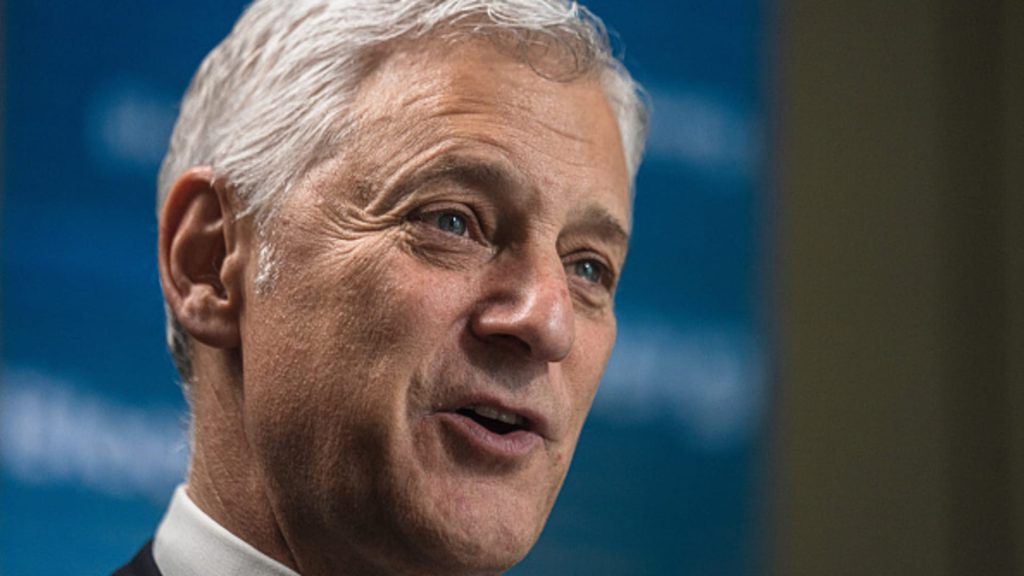The U.S. Federal Reserve looks set to temporarily pause its aggressive monetary tightening agenda, but it has not yet finished the job, the CEO of Standard Chartered bank said Monday.
Bill Winters told CNBC that the central bank’s decision last week to raise interest rates by 25 basis points signaled it plans to hold steady at its next meeting in June.
However, he added that it would likely mark an opportunity for policymakers to take stock of the latest data, and the extent to which their efforts to cool inflation are succeeding, rather than marking an end to the current tightening cycle.
“I think the Fed will definitely pause from here. But I think they have to see whether those inflation numbers really come down,” Winters told CNBC’s Dan Murphy in an interview in Dubai, United Arab Emirates, on Monday.
Of particular concern to central bankers — both in the U.S. and elsewhere — is still rising wages, which they fear could prompt a wage-price spiral, with higher wages pushing up prices and causing inflation to become embedded.
To avoid that, policymakers want to see that job and wage growth is cooling before ending the hiking cycle entirely, Winters said.
“The fact is, job growth is still pretty strong, wage growth is still pretty strong. And that’s not just in the U.S., that’s in Europe and the U.K. as well, as in many other parts of the world,” Winters said.
“So, if we can get the regular wage growth cycle back under control, then I think the Fed can stop here. But it’s not done yet,” he added.
U.S. slowdown in the cards
When the Fed does eventually decide that it has inflation under control and stops raising rates, that will have a slowing effect on the U.S. economy and possibly beyond, Winters noted.
However, he said that growth continues to look resilient in other parts of the world, specifically Asia, which should provide a strong tail wind for businesses like Standard Chartered, which operates primarily in Asia and emerging economies.
“We’re hopeful that the rotation of growth, away from the U.S. and possibly Europe — which are inevitably slowing, ideally not to the point of recession, but we’ll see. It’ll be close, one way or the other — will rotate through to China and the rest of Asia, which are on a post-Covid upswing,” Winters said.
The CEO also batted down ongoing speculation that the bank could be poised for a potential takeover bid, though he took nothing off the table.
“We think we can run this bank independently, for the long term, and generate excellent returns for our shareholders. If somebody thinks they can even do better, be my guest and we’ll have a chat, but that has not happened,” he said.
Read the full article here
